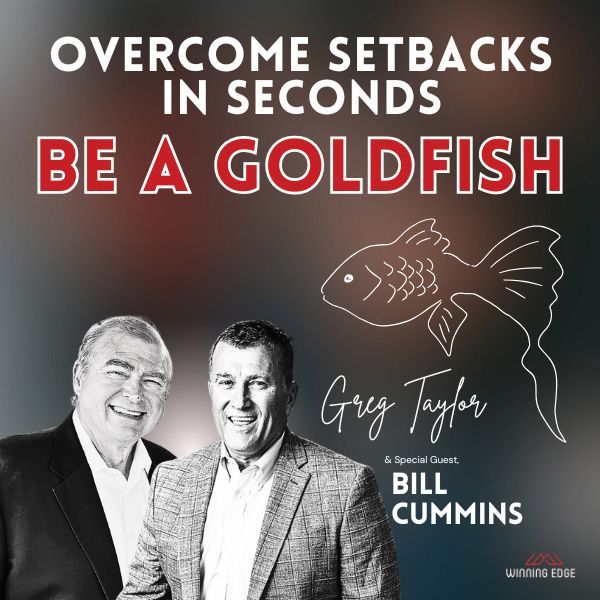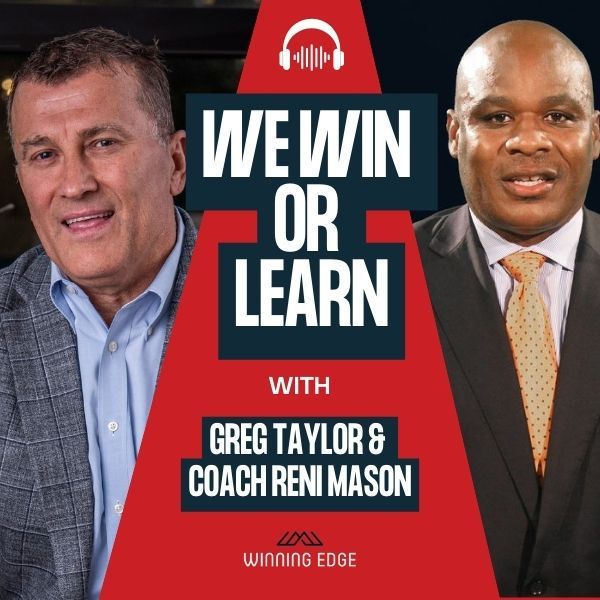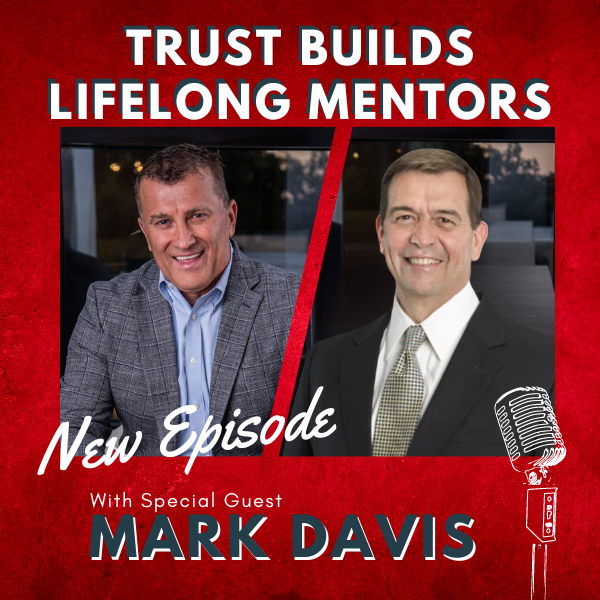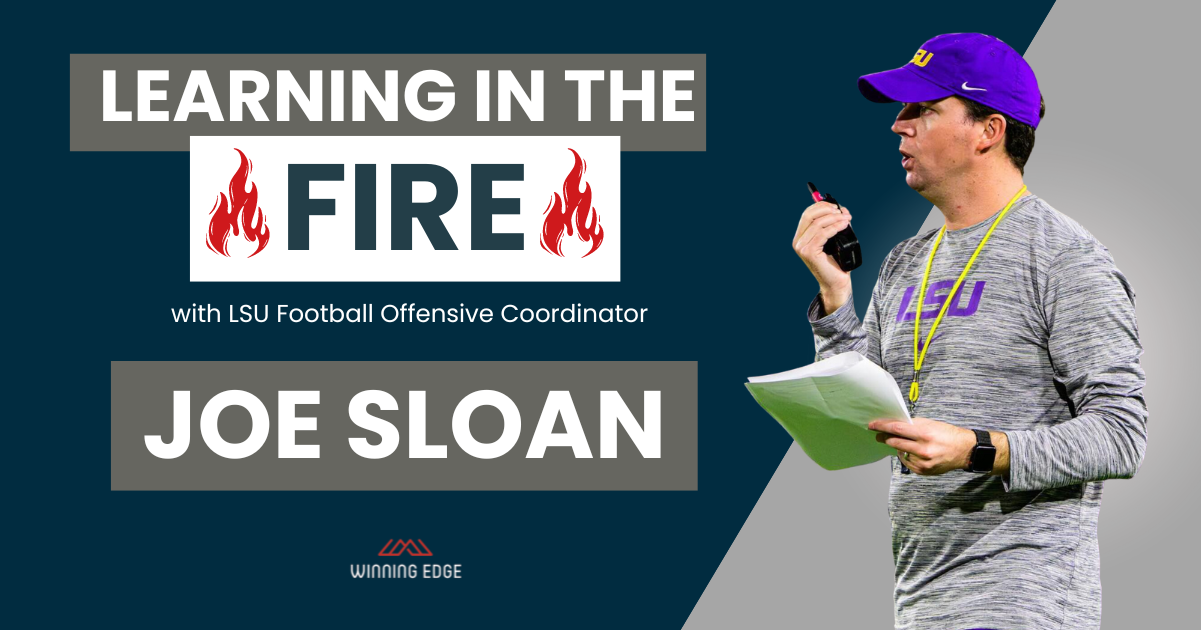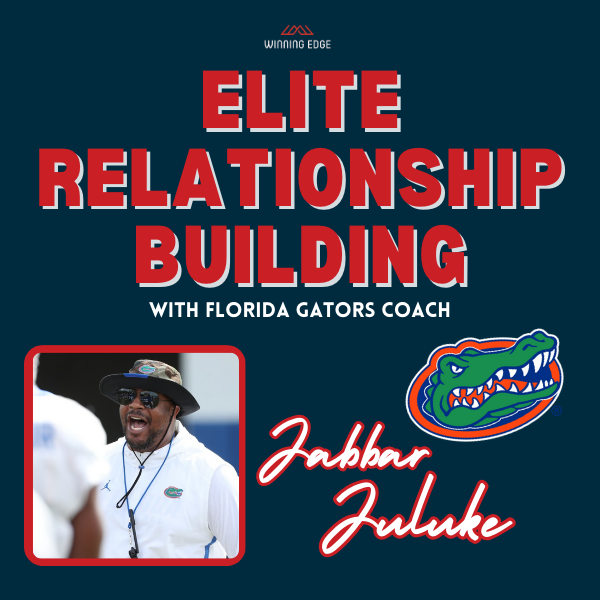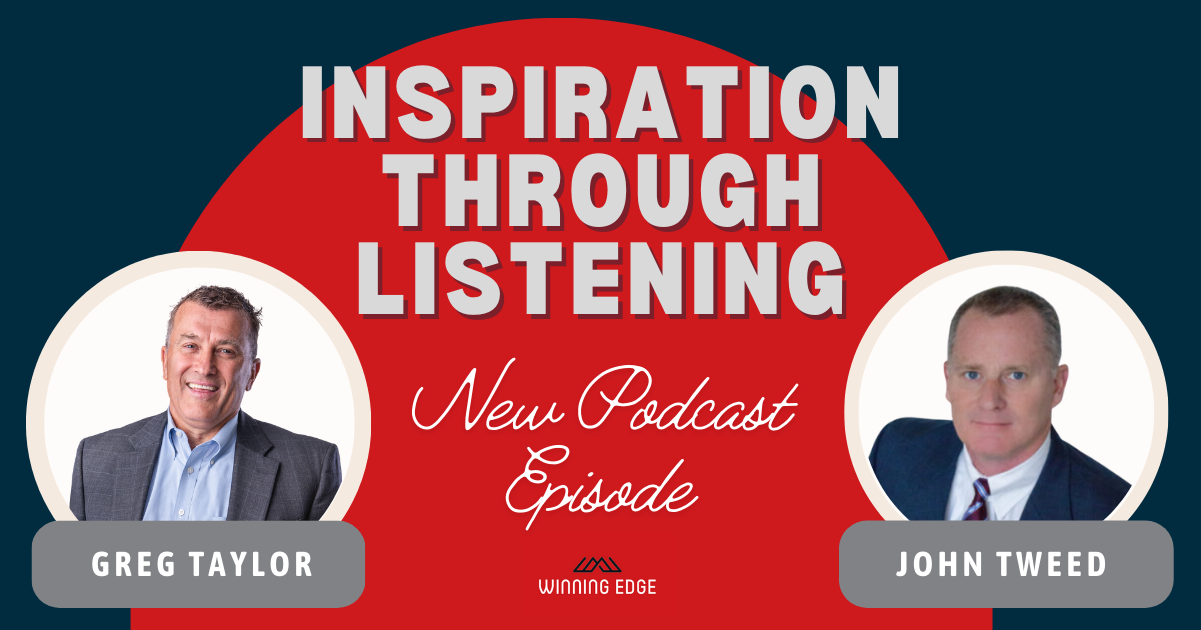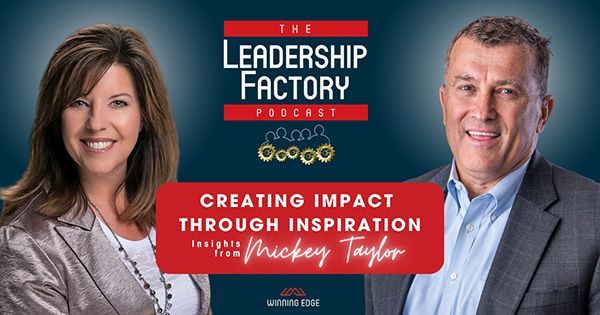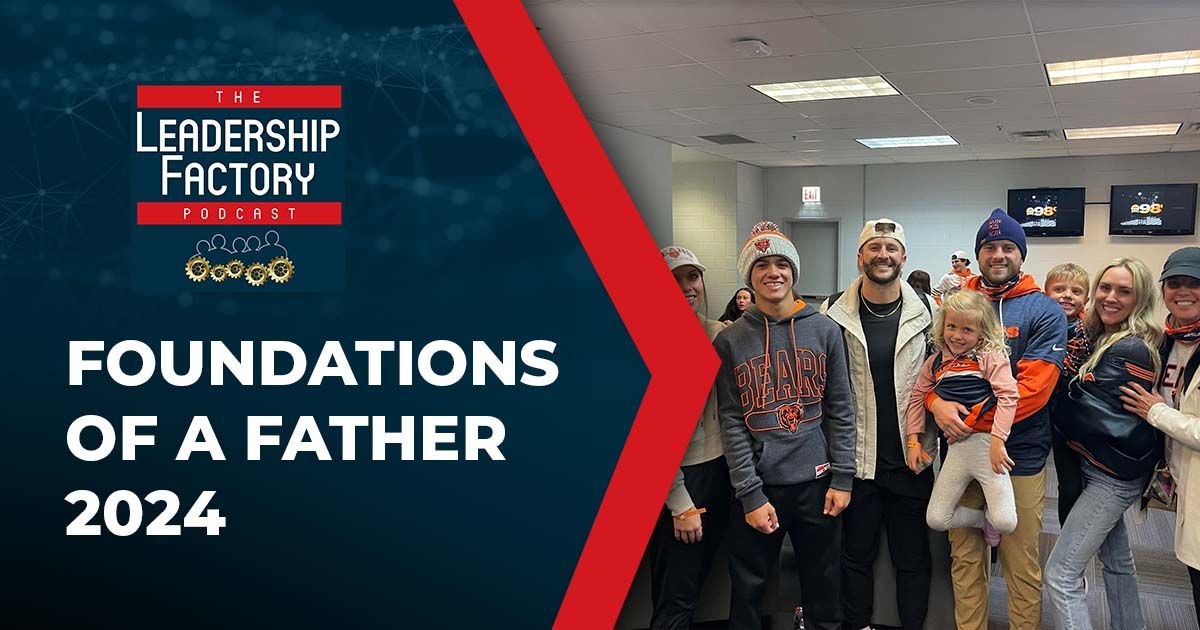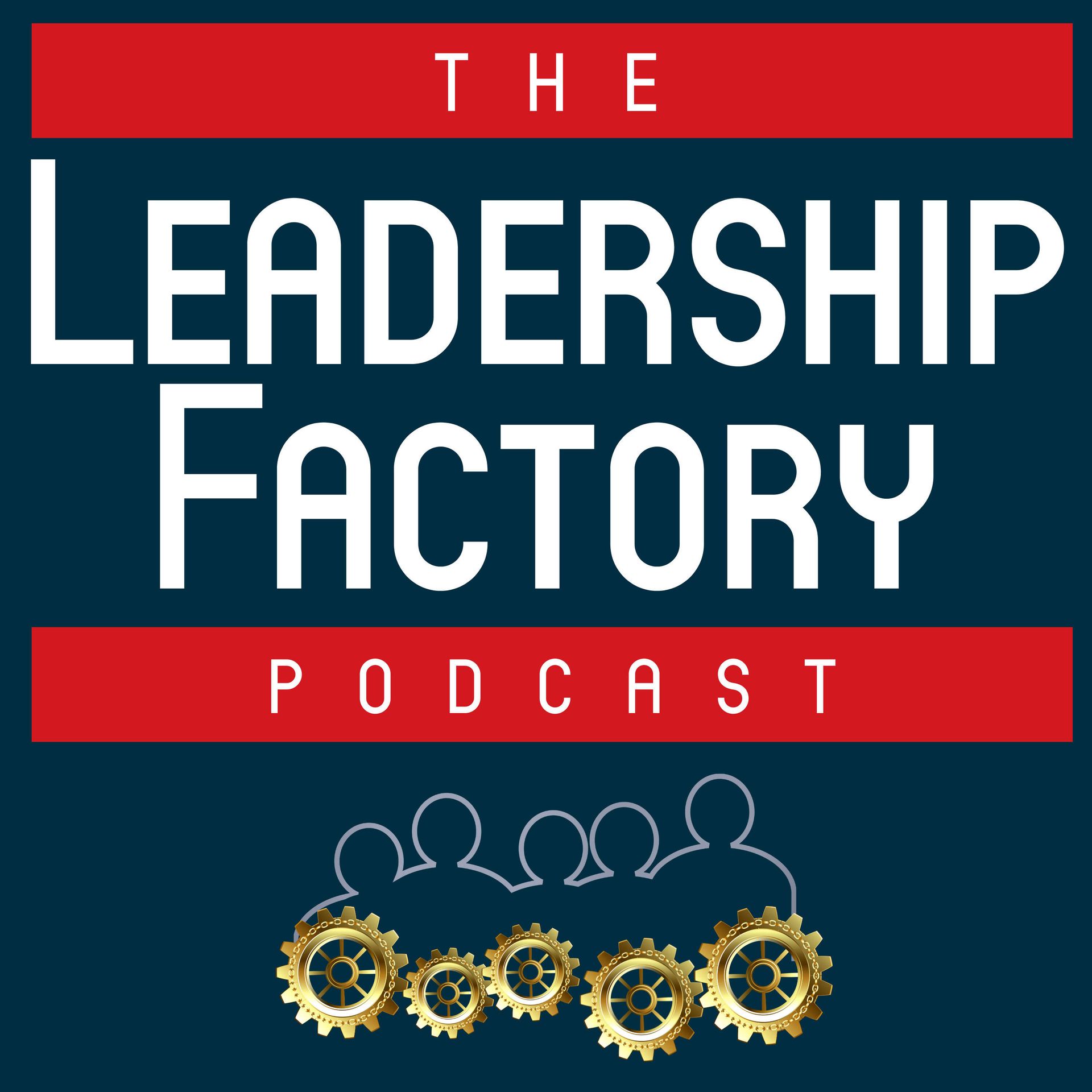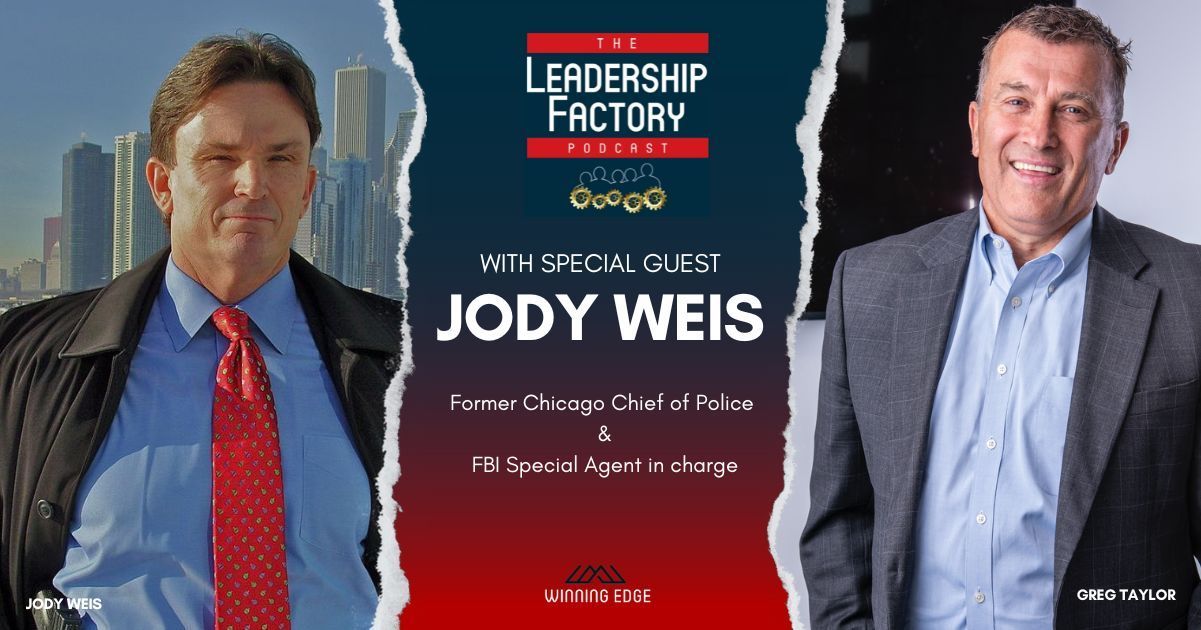
In the latest episode of The Leadership Factory Podcast, Greg Taylor sits down with Jody Weis, former Chicago Chief of Police and FBI Special Agent, to discuss leadership in challenging environments and the importance of being a student of leadership throughout one’s career. Jody shares powerful stories from his career, highlighting the importance of building trust through personal connections and follow-through. He reflects on his approach to leadership—whether in the police force or the FBI—emphasizing the value of understanding and supporting your team to foster growth and success. Greg and Jody also discuss the necessity of balancing integrity and decisiveness, mentoring future leaders, and the role of lifelong learning in continuous improvement. Tune in for an insightful conversation on the foundations of effective leadership and the power of relationships.
---
Listen to the podcast here
Always A Student, Sometimes A Teacher With Jody Weis
Community Engagement
Let’s give a warm welcome to Jody Weis. How are you doing, Mr. Jody?
I'm doing great. Thanks for having me on.
You're the first second-timer on the show. I know you're feeling good about that.
I feel honored or else you're running out of friends to speak with you on this show. I thought we had a good conversation the last time. I'm happy we can talk about something else, maybe go a little deeper into some areas of how we've worked with people over our careers to try to bring the best out of them. I’m looking forward to it.
The name of your last episode was I Believe In People. You're FBI and Chief of Police in Chicago. When you believe in people, you see the worst in people. That was the irony of the name of your title. Knowing what you've been through, all the horrible things that you've seen, had to manage to say, “I believe in people,” because you see the best in people even though you've seen the worst of the worst people.
There's always good in somebody. Few people are pure evil, but usually, some people have made bad choices. If there's a way that you can somehow change their behavior, influence them in such a way that you can maybe help them down a different path. I think that's important. Try to do that.
Some people have just made poor choices. If we can influence them and guide them down a better path, that’s truly important.
To set the premise of this episode, a leader is a person who can inspire another person to take a journey that they're not going to take by themselves. How do you do that? That's the whole premise of this show. We want to develop and grow in our factory with inspirational leaders who can go out to their families, companies, and communities and inspire people to do the right things instead of someone inspiring them to do the wrong thing because people are being inspired one way or another. We just got to get more people on the good side.
Since we've known each other, you would always tell me that when you were the Chief of Police, you would get in your car with your driver at 1:00 or 2:00 in the morning. You would drive to the not-good part of Chicago, sit and have a coffee in a diner, and build relationships with people. When you're telling me that story, I'm sitting there going, “This guy is crazy. What provoked you to do that?”
What brought me to Chicago, my predecessor was a great crime fighter, Phil Klein. He dropped murders over 25% in one year. Brilliant. His one weakness, I thought, was that he didn't really connect with the community as well as he probably should have. He brought crime down. I think because his theory was, “You can be a big enough army and I can control crime in Chicago.” To his credit, he made incredible strides, but there was tension and a disconnect between some of the African American communities down the South and the West Side, then I think with the police department, there had been a couple of high-level incidents that got national attention where the police didn't look real good.
When I got there, I thought, “It's been a while since they've probably had a superintendent that would go out at night, go to talk to people, go down Gangways, come up to talk to the average citizen on the street, try to find out what's going on, what do they need, what's their biggest issue facing them,” then I thought, “It shouldn't just be me.” I had the entire command staff go out every Friday night. They could work a late shift but go out, drive through the community and go talk to people.
I didn't make it real measured thing like, “You got to give me a list of context you go to.” Sometimes, I would call and say, “I'm looking for commander so and so. Is he still out?” They go, “Yeah, he's out here.” We would meet and chat a little bit. The reason I did that was I wanted the community to know that I cared about them. 1) I hadn't done that in a long time. I thought it was an opportunity to see firsthand what goes on because Chicago can be totally different. You can see some beautiful neighborhoods down on the South side during the day, but then, at night, everything, changes. You see a lot of boys hanging around the corner.
You can almost feel there's a different vibe in the air. I'm going to go out and feel that. I thought it would be a good chance to come into the communities, go to some of the little restaurants down the South side or on the West side, sit down, have some jerk chicken, have some fish and chips, grab a cup of coffee, go on a gangway to a party that folks were having and just listen to that. What I would do on Saturdays, the mayor always had a function in the community. Usually, it was in the South of the West side.
Who's the mayor, then?
Mayor Daley. He and I then would go talk to people and carry that on. What I realized right away was that people appreciated the fact that, for that moment in time, they had the mayor of Chicago, the superintendent of the Chicago Police Department, and I would drag the district commander over. We would sit and talk to them. If it was something that we could put a plan to, we would put that in place. Maybe we had to do a special mission where we would have officers go by to check this one area, and then I'd go back and follow up.
I'd say, “Here's my phone number. Give me a call. Tell me how this works, but let me have your phone number so I can check on you.” Two weeks later, I'd come back and say, “How did it work out?” I said, “It was great. The guys that used to always hang around the corner, your cops pushed him off the corner.” I said, “Great. That's what we were looking to do.” A lot of it was building trust with the community that had been absent for a while.
The response now I was a little bit skeptical. I didn't know how it would work. I never brought camera crews with me. I didn't make this as a photo op. Some of the news people, when they heard I was doing this, wanted to ride along, I go, “Absolutely not. I am not using people as pawns in a video to promote what I'm doing to keep Chicago safe. It was going to be just me out there talking to people.” I think a couple of times, my driver said, “You may not want to do this.”
I said, “That's why I got you. Keep me out of trouble. Make sure nothing bad happens.” We never had an issue. People were incredibly polite and appreciative of the fact that I took time out of my day to go down and talk to them, but you got to have that follow-up. If somebody gives you something, it's like, “You're going to see me out here next week. You're going to see me out here the week after that, and I'll make sure that the area, that corner you're concerned about, is going to be cleaned up. I give you my word.”
When you do that, it buys a lot of goodwill in the community. It's like, “The superintendent came out here. He told me he was going to do this. You can check. These boys are not hanging around the corner. They're not playing dice. That area's been cleaned up.” To be fair, it may have moved to another part of that community, but at least I took care of that problem at that one particular place.
On Leadership And Growth
That's good because, as we always say on this show, it's vapor if it's not on paper. I want to make sure everybody's got their pen paper writing these nuggets and bombs that you're dropping because you're trying to decriminalize an area through building relationships. Everybody that's reading is probably not doing that or maybe they are, I don't know, but they're trying to get people to take another step, get people to show up for work, get people to learn, grow and do the job they're asked without creating a problem. If you can meet them to try to decriminalize the area, everybody reading, if you would spend some time with people, stop, which is spend time on people, you could take some anxiety away from someone. That's going to build trust. Trust is going to be the electricity to the inspiration because without trust you don't have anything.
Another powerful thing you said is you followed up. You're making them a believer because if you don't follow up, they'll trust you less than they were when you came down there because, like you said, “I didn't come down there for a photo shoot to get some press running a political campaign. I came down there to genuinely love on people.” You showed them that. They bought into you once you came back fall, “Tell me how we're doing.”
I started doing that as soon as I got out of the career world. When I was in the army, people always reported to me. I was usually in a comm position. Everybody wants to tell you what you want to hear. As soon as I got done with the morning briefings, I'd be like, “I'm going to go down to the maintenance building. I'm going to go down here or there.” You walk up and start talking to people. To be fair, it made some of the midline supervisors extraordinarily nervous because now they have me going down there asking a lot of questions. I did that because I wanted to hear, “What can I do to give you what you need to do your job better?”
I've always viewed it as any leadership position. I'm not in it for me. I'm in it for you, the employee. I'm in it for you, the soldier. I'm in it for you, the agent. I'm in it for you, the cop. I'm not in it for me, the police chief, the captain, the lieutenant or whomever. I'm in it for you. I always felt my responsibility was to give them what they needed.
If I'm not talking to people, any information I get is going to be filtered because some people will say, “We don't want to say we need that.” I go, “Tell me what you need. I may not be able to give it to you, but let me try. If I can't give it to you, I'm going to tell you I can't do that. I'll tell you why I can't do that. I've always found the people who are doing the job, and I usually have the best ideas on how to do it better. They're not chained by this.”
The people who are actually doing the job usually have the best ideas on how to do it better.
That's the way we've always done it because we will, “Didn't we just hire you? How did you do it? Where did you come from?” “We did it this way.” “I like it. Let's try it,” because you can always go back but have the courage to try something to make it better for people. What I was at the Chicago Police Department uniform issue was it made no sense to me. I said, “Can't we make uniforms that are a little more functional?” My background is in the military. You wear these uniforms. They're not functional. They don't help you do your job. You're wearing this body armor underneath your shirt. It's hot. It's bulky. You can't release it real early if you want to cool down a little bit.
“Have you thought about putting body armor on the outside? If you have body armor on the outside, maybe we should make it so you can carry stuff on it. You could put pockets in it and put your name on it. Here's an idea that blew my mind, which they didn't have. How about if we embroider bright letters police on the back of it so when you're chasing somebody down the street, the people behind you will recognize that you're the police rather than perhaps another criminal or offender that you're chasing? It maybe might keep you from getting shot or injured because they know you're the police. I looked at some of the things that I saw. In many ways, the department was an incredible department, but in some ways, because they had not had a lot of outsiders, they were living in the past decades.”
We worked hard to bring new modern things into their way of work, which would help them, help them do a better job, little things, give them a little more flexibility and nobody liked to wear the crown hats because if you lost this one particular shield as an automatic three-day suspension. I say, “The hats look awesome. I think they look fantastic, but maybe we ought to wear those for graduations, funerals, recruitment ceremonies, and ceremonies. How would guys feel about wearing baseball hats?” “We'd love that.” “How about in the wintertime, it's cold? What about a knit cap?” “We'd love that.” I said, “Why don't we try that? How about you make it like a utility uniform?” Little things like that. Those were well received.
It was simple things, but I think it's important to get to know. I did the same thing in the community by going out and talking to them like, “How are you guys with the police?” “We hate the police.” “Why?” “This happened.” I said, “Can you give me a time reference?” “What do you mean?” “Did it happen last month?” “No, it happened when I was twelve.” “You're 42 now. Can we say that the people during that time 30 years ago probably aren't here? If you'll give me that much, can we say this can be a fresh start?” “Okay.” “How many superintendents came down and talked to you at 12:30 at night?” “None.” I said, “I've taken the first step. Can you promise to work with me and see if we can build these relationships a little bit?”
“Okay.” As you mentioned, you got to have that follow-up. You can't just go down there one night and they never see you again. I had my little routine, my route that I would go. The other thing that was interesting was that you could make it more personal. It was great being in your police car or in your expedition driving up. The best interaction I had was when my driver, who then turned into my bicycling partner, we would ride bikes throughout the South and West sides. I was amazed not having been a police officer and how being on a bicycle built relationships. It was incredible.
You weren't behind the glass of a car. You weren't in this 4,000-pound thing that you're driving around in. You were right there with the people. People were friendly. They were very interactive. That was a real eye-opening experience for me. I tried to beef up the bike units and say, “Go out and ride through the community. It's a great way to show that you're here for them.” I would never have known that if I hadn't once said, “Do you want to ride bikes to the community?” They're like, “You're not serious, are you?” I said, “Yeah, I'd like to see how it goes.” It was very eye-opening.
You dropped the button. You gave an MBWA class 101, Managed By Wandering Around.
I've done that my whole life.
Where did you learn that from? Who taught you that? Did somebody model that for you?
It's something I picked up, maybe curiosity, plus I hate sitting in an office. I despise that. Some people like to sit there. You're at your throne. If it was Game of Thrones, it'd be the Iron Throne. Everybody comes to you, “Yes, sir.” I despise that. I absolutely hate that. I'd much rather see what's going on out of curiosity. Sometimes, when I was a young lieutenant, part of what I was responsible for was a missile repair facility.. I knew nothing about that. I'd be like, “I'm going down to the maintenance facility.” They're like, “Are you going to call them?” I said, “No, I'm going to go walk around and see what they're doing.” I would oftentimes do that.
With the cops, I'd walk up and say, “What's going on?” They'd go, “No,” then there's a little bit of a reaction. I said, “I'm asking you. Tell me what's going on? What are you happy about? What are you pissed off about? What can I do to make your world better? Besides, retire or leave, give me something I can do.” I have always found that to be very helpful, so I can understand so then you can see if, like some of the managers are coming to you, they're telling you something you're like, I was down at your unit the other day. I'm not sure I'm feeling that. They often will want to tell you things they think you want to hear. A funny story: When I went to Philadelphia, I had four ASACs or Assistant Special Agents in Charge underneath me.
I knew one of them very well. My predecessor was a good guy, but he did not want to hear problems. I go in and talk to them, and they're like, “Whatever you want.” I said, “No. I'm asking you guys to help me understand what we've got going on here.” “It's all good. Everything is good.” I came up with this one stupid proposal. It was to move everybody around in the office. If you were a white-collar crime supervisor, you were going to go on gangs. I was going to do the big bang approach all at once as a surprise, but then I tried to feign excitement about this. I go, “I've been thinking about this for weeks. I'm excited to tell you about this.”
I go through this. The one guy who did not know me at all was staring at me. He goes, “Can we speak honestly?” I said, “Of course.” He goes, “That's the most ridiculous plan I've ever heard.” He starts going off. I started clapping. I said, “Thank you. It took me all weekend to come up with something stupid and outrageous that would finally make you tell me that what I was thinking about was totally screwed up. Now, we can have these honest discussions because this is what I want from all of you. Tell me if you've got a problem with what you're talking about. Tell me where I'm wrong because if you don't do that, I don't need any of you. If I can play the role of the dictator and come out to issue edicts all day, I can save the government and the American taxpayer four pretty good salaries.”
I said, “The only thing I ask is this. We can yell, holler and curse at each other in this room, but when the door's open, we have to be singing the same song. We've got to do a song. Is that fair?” They're like, “That's fair.” I said, “Can we agree on that?” “Yes.” “Promises.” “Yes.” To their credit, my time in Philadelphia is pretty good. We'd have some spirited discussions, but then it's like, “We're split. In my role, I have to make the final decision so this way we're going to go. Sorry, I know that doesn't make you happy.” They'll go, “No, that's okay. We wanted to voice our opinions.” I said, “If it doesn't work, we'll change it. Nobody's going to die from this.”
My first boss said Averitt Express and I'm high volume intensity at this point. He's the guy that's trying to pull me back. He would scold me, discipline me, talk to me hard, and then he'd see my shoulders, my body be deflated because I was in trouble. He'd go, “Before you leave, be you. I want you to be you, but sometimes you have to slow down, and you have to go at everybody else's pace.” You slowed down. You got on their page.
I learned to slow down and get on people's pace trials, probably 42, 43, 44. I still struggle with it, but I'm so much more aware. That helps me be intentional with my behavior because I know I sometimes have to stop. I have to spend time with my wife or I have to stop. I have to go spend time with a customer or stop and spend time with my sons or grandsons because that's how you connect with people.
Love is spelled TIME. We got to stop. Put your phone away, stop looking at social media, and quit worrying about what's going on in the world. Find a relationship with someone, go spend some time with them, and ask questions. Your curiosity changed things. You tore those silos down of fear where someone could have the freedom to talk. That's powerful because if we can get people in America to sit down out of respect, honor one another, have a conversation without getting mad at each other, and change the world.
At times, I would love to know why some people feel certain ways without getting into specific politics, but why do you feel that way? I'm not judging you. I want to know. Help me understand. Sadly though, the discourse is high right now. It immediately turns into personal attacks, then nothing is successful. You know what helped me out? One day, I was a brand new second lieutenant. I worked for this major, and I liked Major Ackles, the interesting guy. He did big game hunting in Africa, and we were talking about how people can frustrate you. He said, “Do you like baseball?” I said, “Yeah, I played it my whole life.” He said, “Not everybody's a 300 hitter.” I said, “That's fair,” but he said, “Maybe they're a good fielder. Maybe they're a good base runner.”
He goes, “It is your job as a leader to put the right people in the right places to get the most out of them. You can have a winning team without everybody hitting 300. You have nine guys. They can all hit 300. If they can't field, if they can't run, you're going to lose every game. You've got to get that blend. Some people may be awesome. Your job is to get the most out of them that they can give, not knowing that not everybody's created equal. That always stuck in my head because it's like, “This guy's maybe not the best-case agent. He's not somebody you're going to turn over a major drug trafficking organization to, but maybe he's a guy that's good about covering leads.”
Leads sometimes could be a pain in the butt. You're working hard. All of a sudden I go, “This came in from Jacksonville. Could you go out and run this down?” You're rolling your eyes like, “I got some big cases to work.” Some guys and girls are very happy, like, “Give it to me, I'll do it. They do a great job.” They were better suited at those quick turnarounds. If I've got guys and girls who can do that, then I've got a couple of guys who are into making the big cases, and I've got a very good team. Sometimes, you have to defend some of these guys on inspections a little bit because it's a senior agent. They'll say, “He doesn't have any major cases.”
I said, “That's true, but we've taken the team concept here. Look at his lead turnaround time. Look at how fast you process it.” Most of the inspectors that I dealt with are like, “You make this work. You get the most out of your people. We're writing you up as you're all good.” I said, “Thank you, I appreciate that.” To me, it's like putting people in a position where they can succeed. I think that's hard sometimes because, like you, you're very ball-forward all the time. You probably, in your younger years, thought that everybody should be running at your pace, but they may have family issues.

They may have a lot of different issues that they want to run at your pace. You might inspire them to run at your pace, but they can't. It's sad, but then you got to sit back and go, “He or she's given me everything they've got. They're doing a good job, they're taking care of their family, they've got their responsibilities there. They're giving me an honest day's work. I'm okay with that. If they're only hitting 225 even though you wanted to hit 300.”
In your second class, you gave, “Finding the uniqueness of the person and how do you tap into the uniqueness of that person?” What we do, it takes people to do it. Whatever we do, you can take AI or ChatGPT. At the end of the day, it's about relationships. You’ve got to know how to deal with people.
You've hit on this before. I've worked for some bosses, and I've had some colleagues. They want to be liked. It's like, “I'm not going to do that because then people won't like me.” It's like, “No. Not Everybody wants you as their friend. They want you as someone who has integrity and someone who'll make a decision.” There was a special agent in charge out in Phoenix. He's passed away. He was getting blasted on an inspection for the climate survey. He wasn't nice. He was a jerk. He was aggressive. He didn't say good morning to you for some time. They called me up and said, “What'd you think about him?” I said, “The single best boss I've ever had in the FBI.” The guy that's interviewed me goes, “No, are you serious?”
I go, “No, because I said he was always a man of his word, and he always gave me an answer when I needed one. No, I'm not the type of person who runs him for everything like, ‘Mother, may I do this,’ but he always gave me one when I needed an answer. For me, that's all I needed.” They go, “Did he say good morning to you?”
I said, “No. I didn't say good morning to him. I didn't need to. I wanted a guy who would make a decision for me and he was available. You guys make a big fuss about him. How mean he was you loved his predecessor. His predecessor never had a function at his house. The guy you think this big jerk, he had parties at his house for all the support staff, he had it for the SWAT teams, he had it for different squads, and they did something good. Nobody talks about that because maybe in the morning, he's thinking about something. He's got a lot of things on his mind. He didn't say good morning when you walked in.”
Would it be nicer if he would? Yeah. Is that a big thing to do? No, but that, to me, is all secondary stuff. That's stuff. It's nice to have a person you like, whether it's your boss or your colleague, you like that, but you also want to have somebody who's competent, gets the job done and is there for you when you need them. Not to say good morning, but like, “I've got a big problem. I need your help.” You take your glasses off and say, “How can I help you?” That's the type of relationship I've always tried to build with people like, “If you need me for real, I'm here for you. I don't care day or night.”
I had an older gentleman than me, who worked for me for six years when I owned my own trucking company because I'm very quick to shoot. I was probably one of the worst listeners, but I'm much better now because if I want to inspire someone, if I don't listen to them to understand a reply, they'll never trust me so, therefore, I can't inspire. This one guy was looking for integrity. He knew I had integrity, but he said one thing about me, “If you have a business problem with him, he's very brash he's very quick to answer to get on with the decision, but if you had a personal problem, well he'd sit there talk to you for 3 or 4 hours about your personal problem.”
When I looked at him, I said, “Do I do that?” He said, “Yeah, I know if I have a personal problem, you'll sit there, listen and try to help me figure out the most wise thing to do.” He laughed. If we’ve got a business problem, he looks at me like, “Are you stupid? You can't fix that. Why are you asking me this question? That's how I made people feel because it was different.” I'm a little bit like that guy. Not all the way, but we're all different then, at some point, it's like I had to look in the mirror one day and go, “What kind of leader do you want to be?” I had one of my mentors at Avert Express draw that out of me, said “What type of leader do you want to be?” When he asked me that, I was 27 or 28 years old.
He said, “Go around, look at all the leaders you've had, good, bad and ugly. You pull the good stuff. You develop your own leadership stuff.” I am taking another step in the system inspirational leadership workshop. We do a leadership legacy, and we go through five people of impact. What did you know, see and feel about them? How did they inspire you? We'll write your own leadership legacy based on what's already inside of you that someone's already modeled for you. That someone made you feel great when they did that. Why don't you do that? If that made you feel bad, don't do that to people.
This is an interesting point. Back when I was at FBI headquarters in the human resource division, we had a consulting company come in. They looked at how we promoted people to mid-level management, right above the agents. We didn't have a good program. It's you who raise your hand and you get promoted. We wanted to have some type of evaluation program. It was fascinating because you'd have role players you'd go through this. Many people reverted back to what they had experienced, even knowing it was wrong. A couple of people called me up and said, “I understand I failed this thing.” I said, “Let me take a look at it. I'll get back to you.”
I'd played the tape, I made some notes, and I said, “I listened to the tape.” They said, “What'd you think?” I said, “I think you missed the mark, but here's why. why did you do this?” This one person goes, “That's how everybody's always treated me.” I said, “Did you think that was right?” He goes, “I was nervous so I figured I'd revert back to what I knew.” I go, “That's another problem that we need to address with maybe some of our current supervisors.”
A perfect example is this, the scenario was this, you were on surveillance, and the target you were watching was taken off. You didn't know that there was going to be a search warrant the next day. You were going out doing some reconnaissance and getting some photographs of the house. All of a sudden, you see them loading up the house. You call your supervisor on the radio, and then the supervisor, you have to give him the report and some recommendations on what to do. The role player in this was the supervisor. What actions did he give to the agent who called in with this problem? This good friend of mine calls up. He's angry because he flunked. I said, “Let me look at this.”
I go back and I listen to it. I'm shaking my head. I call him back up. I said, “You chewed out the agent for calling on the radio because you thought that was an operational security violation. Did you truly think that was the point of this exercise? The person was an idiot. They called on the radio, and they should have gone to a payphone and called in. Do you realize the thrust of this was what you were going to tell the agent to do at that time? It was wide open. You could have said, ‘Go get the locals, do a car, stop, follow them.’ There wasn't a set answer. There were several of them.”
He picked one that nobody even thought of, that you would harass the agent, and chastised the agent because the person called you on the radio. I said, “I don't know what to say. I understand what you're saying, but I'm going to say that was not a good call.” He got mad at me like, “I'm sorry, I can't do this.” I felt bad about that because I did like him, and then one of my colleagues said, “Would you want him running a squad?” I go, “Good point.” It's a friend of yours. You hate doing something that's basically going to drive a stake through his heart to move up in the organization.
You also think, “Maybe moving up and being a leader is not the right step for everybody. Although it was painful at the time, perhaps you prevented something much worse down the road.” You try to rationalize a little bit, but it still hurts when somebody you like is somebody. You basically stop them from achieving what they want to do. A lot of times, they don't want to hear why you did it. They're just mad at you, but it takes it over after a while.
Sometimes, when we speak life into people, the correction, they rebel against us, but I love you so much. Discipline is done properly when it's done out of love, a motive. When I discipline my sons, they've got to feel that I love them. That's in a relationship because they got to know, “I love you so much. You can't keep doing what you're doing. If you want to get mad at me, that's on you. I'm not mad at you. I'm mad at your behavior. As a person, you're special.”
My mom did a great job separating the person from the behavior because she didn't throw out with the dishwater. She kept me. She threw my behavior away. When that behavior came back, she dealt with that again. We're right back in here again. The same thing, same bat channel, same time because you won't buy your behavior. She kept telling me, “You can't fix it until you own it. You keep deflecting to other people. That's why we're right back here again. You're going to be disciplined again, but I love you. You are better than this. God didn't create you to do this. There's so much more for you, but you will be disciplined.”
It's hard for you to understand that at that time, but that was an actual level. She could easily wash her hands off you said, “I'm done with you.” She didn't because she loved you.
Building Relationships With Team Members
We're whiling down here. Last question. What would you say to someone who does not see a need to build a relationship with their, I'm going to say a word out of hate saying, subordinate or a teammate who reports to you? They don't see a need to build a relationship with someone.
It's shocking that somebody would feel that way. What's that old saying? “If you take care of your people, your people will take care of you.” If you're working by yourself all the time, or maybe you've got one person underneath you, maybe you can get by with that. As you move up in an organization, you have to be able to delegate. How do you know if you can delegate? If you don't have a relationship with people, you're not going to feel comfortable delegating work to them because at the end of the day, they may do the work, but you have the responsibility for that work. I've started working with a small firearm company. It's called Guardian Training Consulting, started with a husband and wife, and great people. We've been working to grow and try to expand a little bit.
You can’t delegate effectively if you don’t have a relationship with your team.
One of the founders, the husband is like, “This is hard. This is what Karen and I did. It's hard letting go.” I said, “The first thing is you got to know your team. You brought everybody on here, and you trust us.” He goes, “I do.” I said, “You've got to have those relationships. You've got to feel 100% comfortable when I'm teaching a particular class. I may do it differently than you, but it's going to be done as well as you. You won't know that until you see that I understand what I'm doing. It's still going to be hard because this is your baby. You'll never take this to the next level. If you're teaching basic courses all the time.”
“You need to be going out selling this. You need to get the contract with LAPD, NYPD, or the Los Angeles Sheriff's Office that you're going to come in and totally revamp their firearms program. Teach these officers how to shoot fast and accurately. Give them training that they've never seen before. If you're teaching something as basic as concealed carry or use of force simulation, they're basic and important courses, but that's not building the business.” I've tried to work with him and mentor him he's doing a great job with it. His wife is, I think, better at seeing that big picture. He's also torn fighting that desire. He likes to shoot. He likes to be on the range. He likes to do this stuff.
I said, “Sometimes you got to back off that let us do that.” It's the whole thing of knowing your team. Get to know your people because you will never feel confident if you don't. You'll never trust them to go in and do the work that you have to have them do. The more you moved up in an organization like Chicago Police Department, I had 13,500 people. Do you think I could do their work for them? No, I had to have relationships. Did I know all 13,500? Of course not. Did I know all their commanders? Yes. Did I know all the deputy Chiefs? Yes. Did I come in and have conversations with them? I call up and say, “Can I come by see you at your office? Do you have time?” The answer is yes.
I would come in and talk. They'd have their binders like, “What do you want to talk about?” I go, “I want to talk about you.” “What?” I” want to talk about you I want to get to know you as a person. I learned, are you the next person who will be the superintendent of the police department? Are you ready for that position? If you're not ready for that position, what can I do to help you get ready for that position? All of you should be aspiring to be in that job. Would you like to be superintendent?” “Yeah.” I said, “Do you feel you're ready right now?” “Probably not.” I said, “We have a gap. How can I help you fill that gap?”
They had never had anybody come in to ask that. I asked why. There was a Black guy who I liked. He comes up. I say, “Help me understand.” He said, “This is a Black expression. Have you ever heard the term bucket of crabs?” I go, “Not really.” He said, “What do crabs do if they're in a bucket? One's trying to climb out. The other one's going to reach out and pull it back. Anybody that looks to be a superstar that looks to be moving up will be viewed as a threat.” I said, “No, that's the person you should be grooming for future leadership roles.”
He started laughing. He goes, “You are so far into this agency because anybody else in your seat would look at us as a threat. I'm a creative guy. There's been a brick put on my head for the past five years because I'd have some ideas. The mayor might ask me about it. Your predecessors would find it bad, and they'd say, ‘Bury him.’ I said, ‘Why?’”
He said, “I was viewed as a threat.” I said, “The good news is we got to change that culture. The bad news is that it isn't going to happen overnight because I'm guessing that a lot of the bosses permeate down to it, and they all feel that way.” He goes, “100%. That was one of my endeavors. I don't know how successful I was at that because there were too many. I wasn't there long enough. You've got to know the people underneath you. When you see talent, you have to develop that talent. I've always looked at I got to find the person to replace me because a rattlesnake could bit me, I could have a heart attack. If I have done a good job of finding a successor, then I pretty much failed as a leader.
That might be the name of this episode, Find My Replacement.
I personally feel that we should all be doing that.
I call it working myself out of a job. Every promotion I got at my first company, I worked myself out of a job. I started doing a job for which they gave me a promotion. One of the owners I worked for said, “Until you do good here, you show me that you can do your next step up to an executive from a VP. You got to be able to do both of those jobs at the same time.” I said, “I'm game. Let's grow with it.” The people that don't want to do that, take a step back. Somebody else is coming. That wants to warn you. Thank you so much. Great information. Here are some things: “Find my replacement. I want to talk about you,” which is powerful, and “Know your team. How can I help you fill that gap?” Don't create a culture where it's a bucket of crabs.
I have to give you one more good line, “Always a student, sometimes a teacher.” I've been a firearms instructor within Illinois and the FBI. I came out here in Arizona. I tried to say, “I can always learn something.” I did. I learned a lot of cool stuff that I did not know. The guy I am teaching goes, “I thought you were going to be like a real jerk and a know-it-all.” I said, “Absolutely not. I'm always a student. Sometimes I have to teach, but I'm always a student. Even when I teach, sometimes I usually can pick something up from the student.” He loved that approach. That's one of my mottos.
Am I taking another step system, an inspirational leadership workshop that is trait number ten of an inspirational leader, lifelong learner? When I worked there, the COO at Averitt Express said, “If you're not growing, you're dying.” Write that domino effect that I've challenged you with. Make sure you can find one thing out of this episode that catapult you forward in your inspirational leadership career. Jody, thank you. You're amazing. We had this Bobcat snake show that we've talked about for many years. Thank you very much. I look forward to seeing you again. Readers, read what he said. Dropped a lot of nuggets that's going to help you get that next promotion. Thank you. Go have a great day. Let's grow.
Thanks for having me. You make that play.
Important Links
- Jody Weis
- I Believe In People – Past Episode

